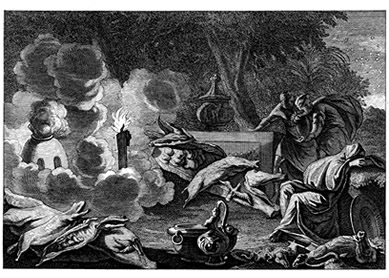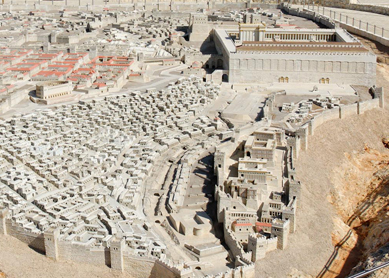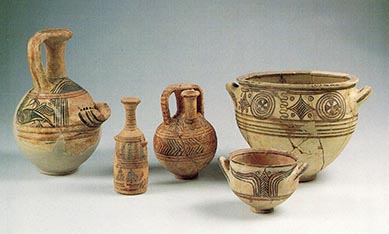Some of the most popular and enduring stories involve an underdog who overcomes great obstacles and secures victory against the odds. Arguably the most famous of such stories is the unlikely triumph of David—the young Israelite shepherd—against the battle-hardened Philistine war machine, the nine-foot-nine Goliath of Gath. Even though many people have heard about “David versus Goliath” in the media, the actual details of the story in 1Sam 17 are less widely known. According to the biblical story, the Philistines and Israelites were locked in a heated struggle over a limited amount of land. The Philistines enjoyed a technological advantage (see 1Sam 13:16-22) and usually held the upper hand, but in this case the tables were turned.
How is Goliath characterized in this episode?
Most English translations call Goliath a “champion” in 1Sam 17:4, a paraphrase of a Hebrew expression that can more literally be rendered “a man of the place between.” If a combatant remains standing in the space between two armies at the end of the battle, such a person is a champion, and the implication is that Goliath has been effective in many such conflicts. Goliath’s immense stature must be a reason for such success, but he is also heavily armored as he approaches the Israelite troops. Such a long description of a warrior’s accoutrements—beginning with Goliath’s helmet, then moving down to the coat of mail and bronze greaves on his legs—is uncommon in the Hebrew Bible. In fact, this portrait is much closer to depictions of warrior-heroes in Greek literature and in this case points to the Hellenistic roots of the Philistines.
But Goliath is also from the city of Gath, and according to Josh 11:22, Gath is home to the “Anakites,” an ancient race of fearsome giants. Consequently, Goliath is pictured as the ultimate hybrid figure: a Greek warrior not unlike Achilles and a member of an ancient race of giants who struck terror into the Israelites moving toward the land of their inheritance (see Deut 1:28). Whoever takes on Goliath faces a formidable foe indeed. As if the description of Goliath’s ancestry and weaponry were not enough, he is also presented as an intimidating speaker who verbally assaults the army of Israel and David himself, before any actual fighting: “Come to me, and I will give your flesh to the birds of the air and to the wild animals of the field” (1Sam 17:44).
What happens to the head of Goliath?
Goliath challenges the Israelites to choose a fighter to face him one on one, with the losing nation to become slaves of the other. Even for an experienced fighter this represents a daunting task, and David has to first convince Saul that he is equal to the task. Testifying about his prowess against lions and bears, David’s speech is impressive, and Saul agrees to allow him to enter the ring. Even more impressive are David’s words to Goliath, asserting that the battle belongs to God and that he intends to use the giant’s own sword to decapitate him (1Sam 17:45-47). It should be noted that David rejects the offer of Saul’s armor, but he does have a slingshot in his hand, a weapon customarily identified with Benjamin, Saul’s own tribe (see Judg 20:15-16). David also takes a shepherd’s staff in his other hand, an implement that in 1Sam 17:43 provides Goliath with a canine insult: “Am I a dog, that you come to me with sticks?” But it seems that David is merely using the staff as a distraction, and evidently Goliath takes the bait and does not see the well-aimed rock that hits his forehead, causing him to fall face-first to the ground.
Like an athlete who guarantees victory before the game, true to his word, David cuts off the head of the Philistine with the giant’s own sword. But Goliath’s head is subject to an interesting postmortem journey, for according to 1Sam 17:54 David carries the head to Jerusalem. At this point in the larger story, Jerusalem is a non-Israelite city, and even though it is in the heart of the promised land, no Israelite has conquered it. In 2Sam 5, David will successfully invade it, rename it “the city of David,” and transform it into the national capital. Thus the head of Goliath in 1Sam 17 acts as a kind of security deposit, anticipating David’s larger achievement and installation as the king of all Israel.





